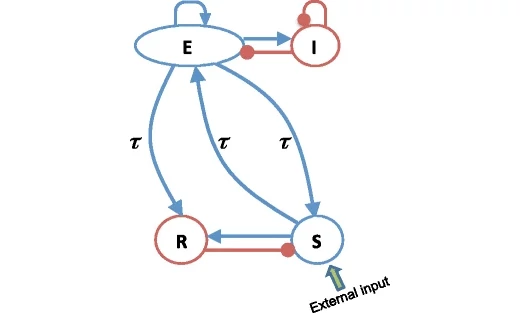According to the World Health Organization, the burden of mental disorders continues to grow with significant impact on health, major social and human rights and economic consequences in all countries over the world. Today, they are effective prevention strategies and treatments of mental disorders. Typical treatments are psychotherapy and pharmacological medication that alleviate the disorder symptoms in a certain number of patients. However, a non-negligible percentage of patients stop responding well to medication treatments after a certain time or do not respond at all. The reason for this failure of pharmacological drug action and thus failure of medication treatments is poorly understood.
Frequently, such patients are offered to undergo an electric or magnetic Transcranial NeuroStimulation (TNS) treatment. These have been shown to improve the health conditions of patients suffering from mental disorders. However, the success rate of TNS is limited due to lacking comprehension of the underlying neural dynamics that the TNS induces. TNS may trigger an improvement in behavior and cognition and these changes can be observed after some weeks of treatment. In summary, both pharmacological drug treatment and neurostimulation are medical modulation treatments that alleviate patients of pathological symptoms. Both treatments modulate cognitive and behavioral long-time dynamics and promise to improve the patient’s health situation.
Similar to TNS, digital drugs have been shown to affect cognition in patients. They may represent exogenous stimulations, that affect the brain by auditory or visual perception and may induce sleep or trance-like states. Conversely to pharmacological drugs and transcranial neurostimulation, all laymen can download or activate corresponding digital drugs from the internet and apply them, while they may provide a specific clearly-defined stimulus that may put the subject’s brain in a certain state after tens of minutes of application.
Our research focuses on brain modulation by pharmacological drugs and digital drugs in the clinical context with a focus on the corresponding modulation of consciousness.

